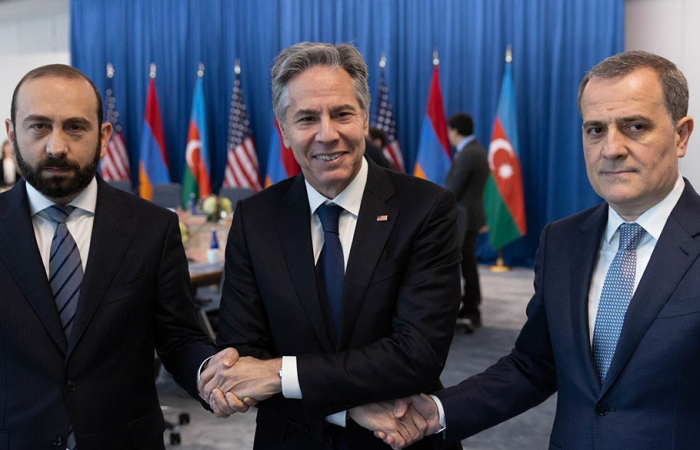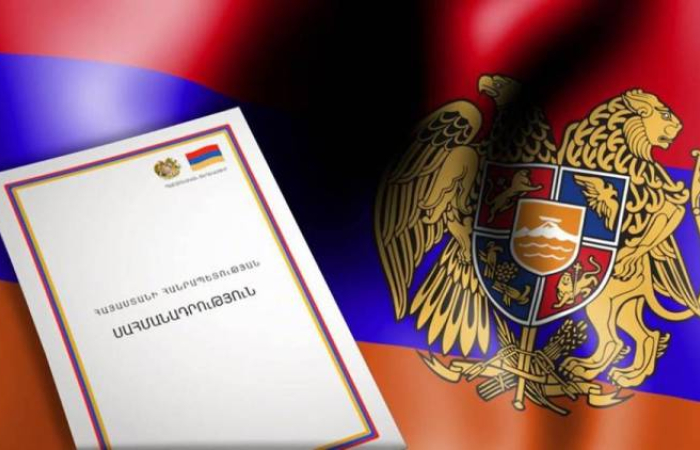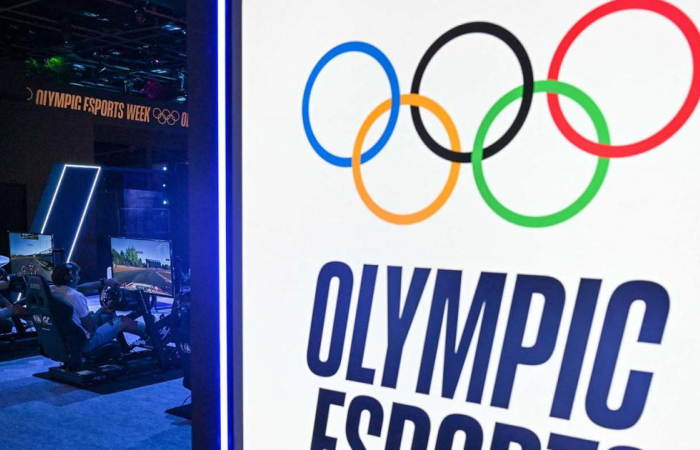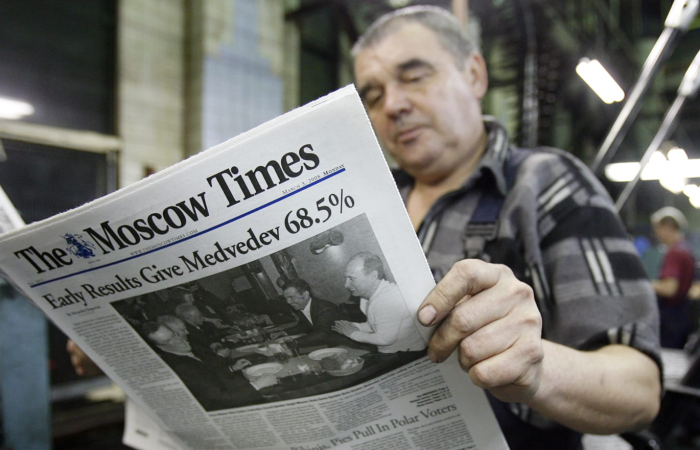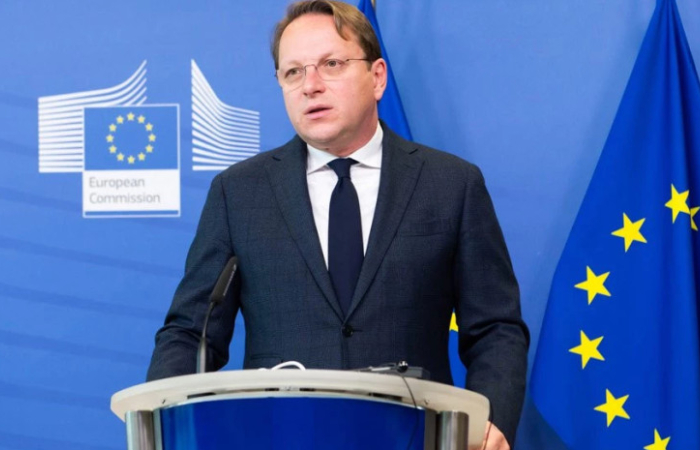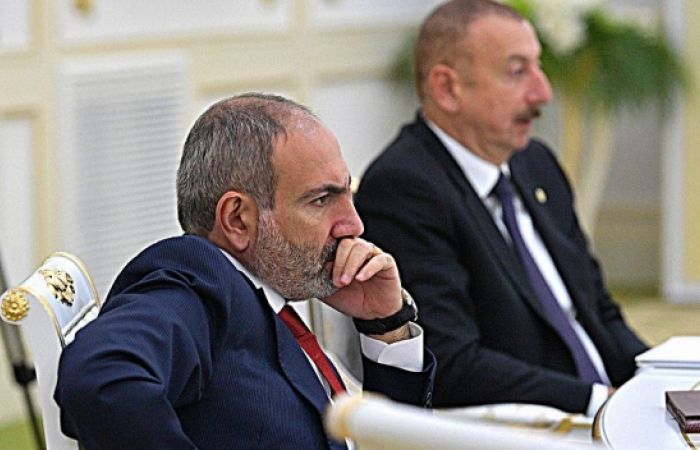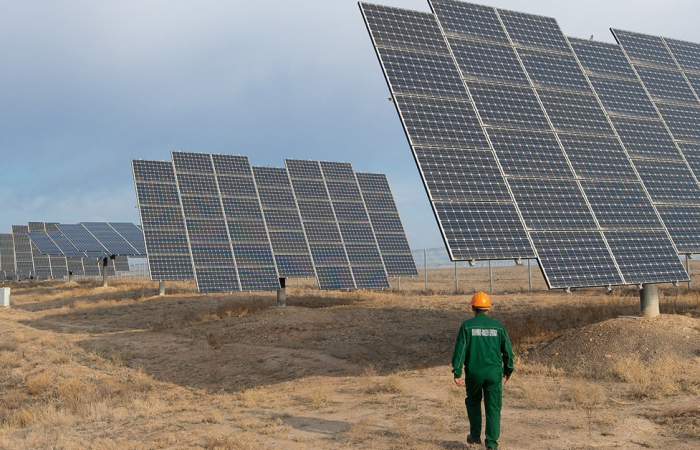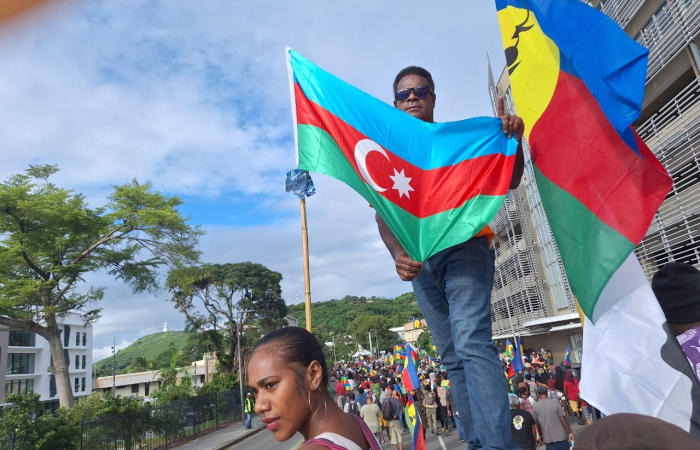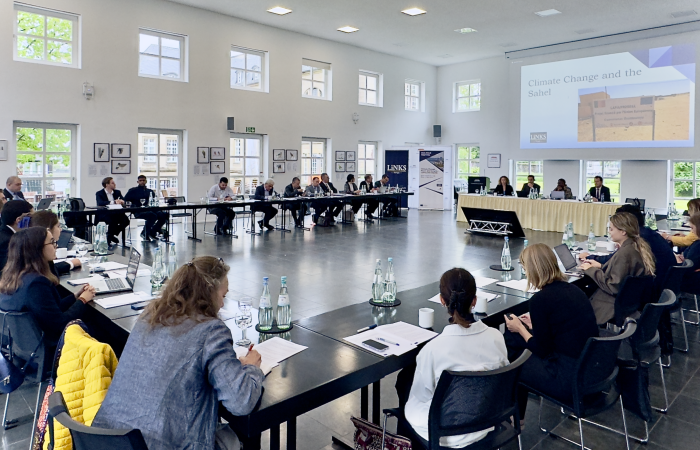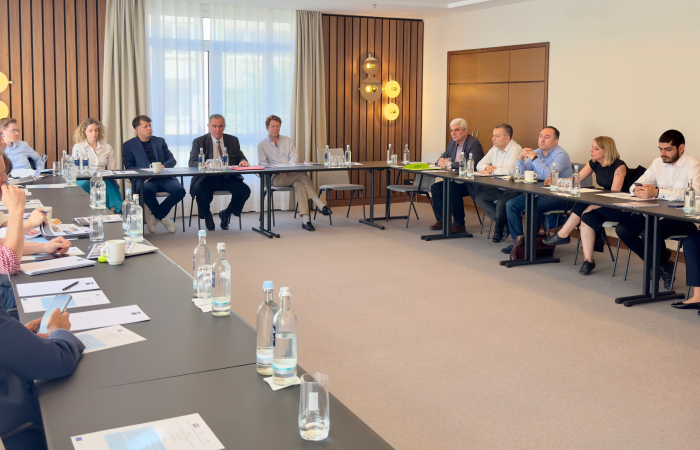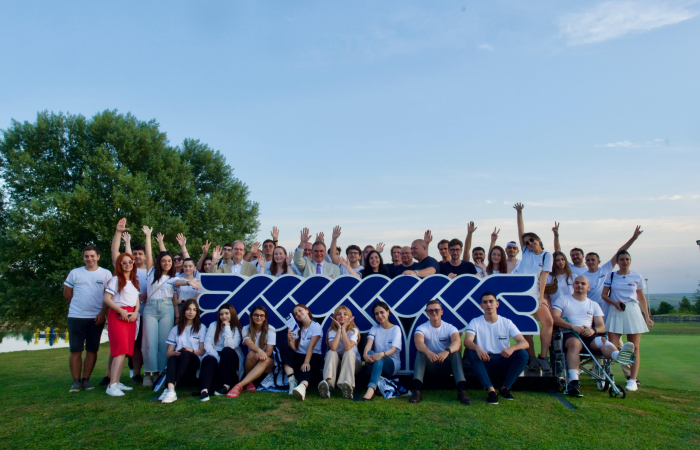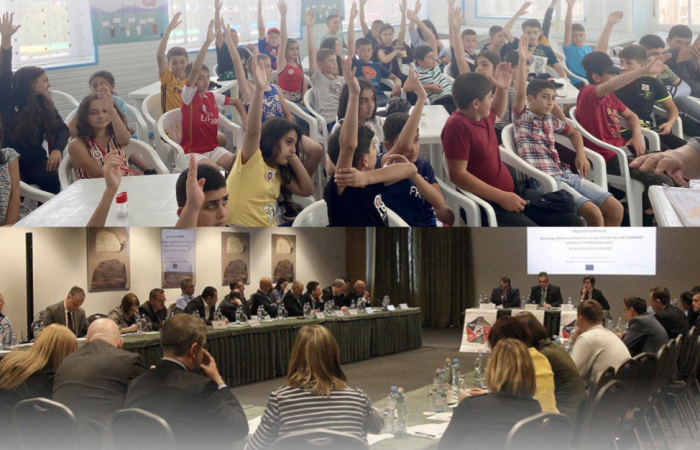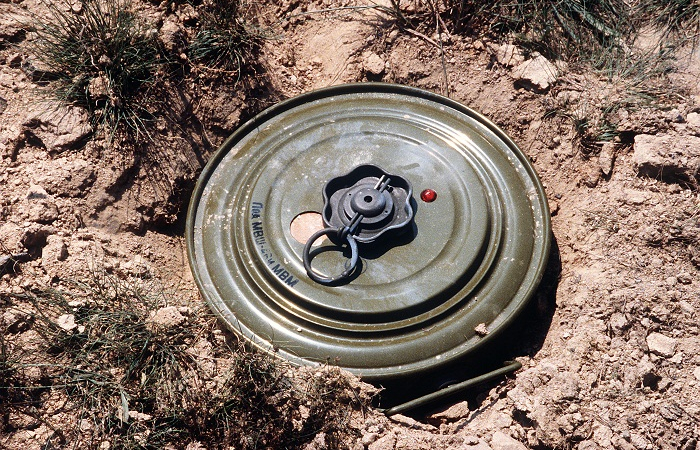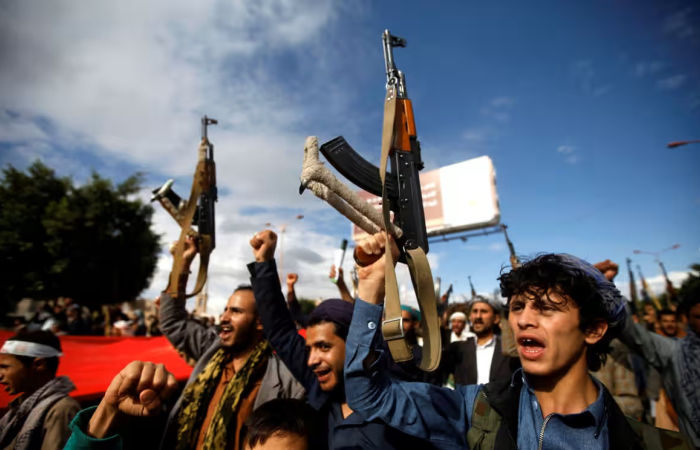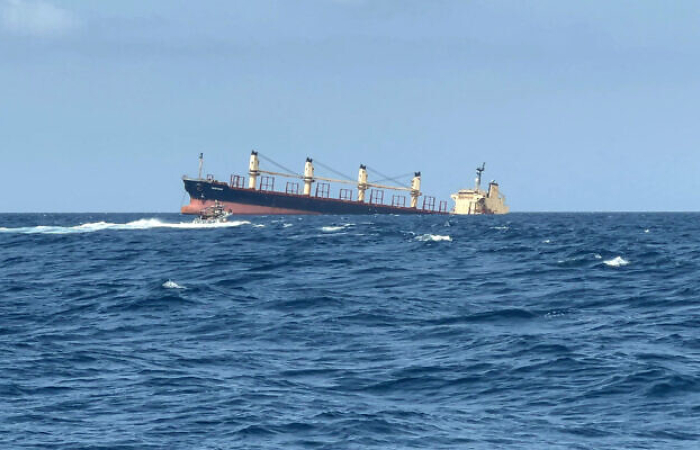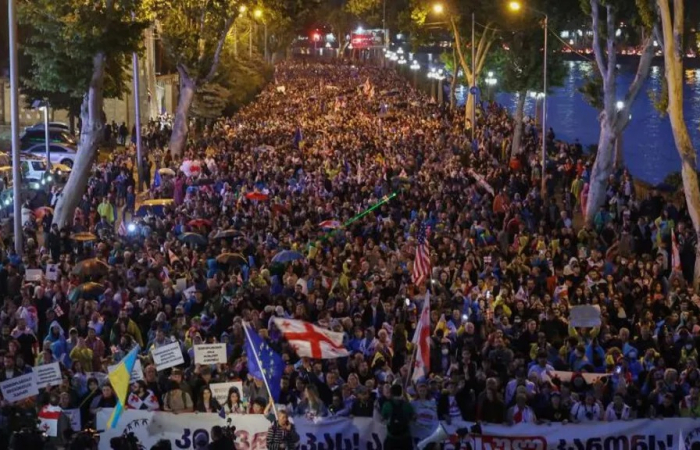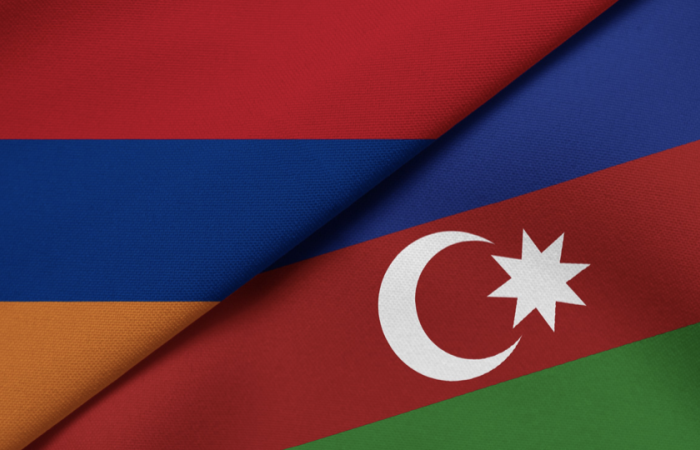Editor's choice
This is a members’ functionality. Please
Sign upNews
Trending
Bonn Dialogue Meeting calls for the theme "Climate Change, Peace and Security" to be included in the agenda of COP29
6 May 2024
A dialogue meeting on the topic: “Climate Change Peace and Security – COP 29 and Beyond” was held at the Bonn University Club in Bonn, Germany, on Friday, 3 May 2024. Representatives of various state-parties to the Climate Convention and of the UN Climate Secretariat, joined participants from around 30 academic institutions, think tanks and civil society organisations to review the work done on this topic at COP28 in Dubai in December and chart a way forward for ensuring the continuation of the process at the COP29 meeting in Baku in November.
At the opening session, the meeting was addressed by HE Hana al Hashemi, the United Arab Emirates COP28 Chief negotiator, HE Nigar Arpadarai, the UN High-Level Champion for COP29 in Azerbaijan, and Mr Markus Hicken, Director for Energy Foreign Policy, Climate and Security at the German Federal Foreign Office. Also speaking at the opening session was Ms Maria Paloma Noriega Jalil, representing the UN Climate Secretariat. There followed an intensive one-day of discussions on the current state of the COP process, and the on-going debate on the nexus of Climate Change, Peace and Security within the COP process. The meeting was addressed by world-class experts from leading think tanks and academic institutions, including Chatham House, the German Council on Foreign Relations, ADELPHI, the School of Oriental and African Studies in London, Heidelberg University, The Hertie School in Berlin, amongst others.
The meeting positively assessed the steps taken in COP28 in Dubai in December, including the inclusion of climate change, peace and security as a theme of the meeting, the holding for the first time of a day on peace in the deliberations, and the “COP28 Declaration on Climate, Relief, Recovery and Peace”. It was felt that it was important that this momentum will not be lost, and similar actions are also included as part of the COP29 meeting in Baku in November. Whilst it was recognised that the nexus between Climate Change Peace and Security was now widely recognised internationally, inserting this in the COP process remained an issue under discussion.
During the meeting three aspects of the Climate Change, Peace and Security agenda were highlighted, namely water scarcity; food insecurity; and landmine contamination and environmental degradation resulting from conflict. Participants called on the State Parties to the Climate Convention meeting in the context of COP29 to ensure proper discussion and action on these themes that affect millions of people and thousands of communities across the world.
In his concluding remarks at the end of the dialogue meeting, HE Ambassador Elshad Iskanderov, advisor to the COP 29 presidency, said that Azerbaijan was positive to the idea of having Climate Change Peace and Security as a theme at COP29. Ambassador Iskanderov reminded that the decision to hold COP29 in Baku was taken unanimously, and was an unprecedented confidence-building measure in the context of the South Caucasus. Azerbaijan wanted to build on what had already been achieved in Dubai. He said that these decisions did not depend on Azerbaijan alone since COP was a multilateral process where the 198 state parties had the final say. Ambassador Iskanderov underlined the readiness of the Azerbaijani COP29 presidency to continue the dialogue on this issue with academia, think tanks and civil society as the preparations for COP 29 progress. He highlighted the fact that the discussion needs to focus not only on the potential that climate change will fuel more conflict and insecurity, but also on the impact of conflicts on climate change and environmental degradation
Concluding the Bonn Dialogue Meeting, Dr Dennis Sammut, Director of LINKS Europe Foundation, who together with Candid Foundation and ReStart Initiative hosted the Bonn event, said that a lot of work needs to be done between now and November, and particularly the dialogue with the COP Troika countries, the UN Climate Secretariat and interested state parties needs to be continued and intensified. As a concrete step, LINKS Europe will set up an ad hoc working group with other interested non-state actors, to ensure that the conversation continues, and tangible results are achieved.



